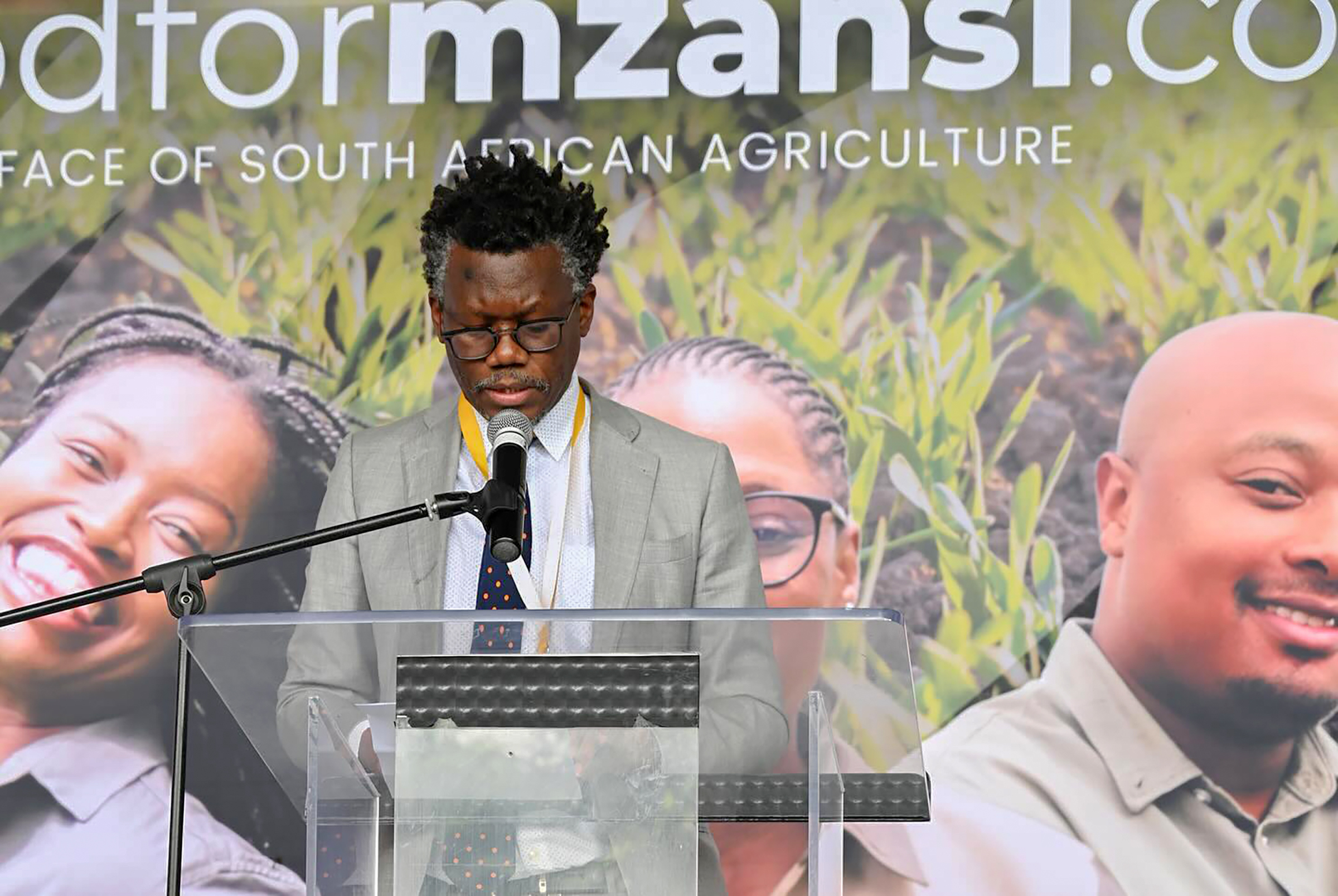The Mzansi Young Farmers Indaba has become a platform to discuss the future of farming and attracts farmers looking to level up their skills and link up with new growth opportunities.
In attendance at the indaba was well-known legal scholar and author Tembeka Ngcukaitobi, who delved into the implications of the Expropriation Act, focusing on its impact on land ownership and agricultural development, particularly for young black farmers in South Africa. With his expertise in constitutional law and land reform, he provided insights into how this legislation shapes land reform.
In an interview with Daily Maverick, Ngcukaitobi explained that the expropriation act was about state ownership of land, so young farmers would still have to go through the current channels of land access that usually provide leases, not ownership.
“You can implement the act fully, but it will not give you land. You need another act to make this thing work, you need a redistribution act. The Expropriation Act is about state ownership, not distributing land to individuals. That addresses the supply side, it’s not addressing the demand side. People are concerned about the demand side,” Ngcukaitobi said.
He explained that an act to redistribute land did not have to wait for the Expropriation Act to come to fruition in order to set this in motion, noting reports that 2.5 million hectares of land were under state control, and needed to be distributed.
Human settlement crisis in cities
Ngcukaitobi said that although agricultural land should be one of the primary objectives when redistributing land, what he deemed more significant was the act’s potential to address the human settlement crisis in cities.
“The category of land that can be taken without compensation is in the inner city. Buildings are hijacked, buildings are abandoned, people cannot afford to pay for rates, etc. That falls under the section 12.3 category of taking it without paying anyone. If you were to focus on that, it would go a long way toward helping to solve inner city housing, especially in Johannesburg.
“Also this section provides that you can take land. If there is a building or structure, you would have to use other provisions of the act that would mean nominal compensation has to be paid, not nil,” said Ngcukaitobi.
 Farmers and other agri-businesses exhibited their products and services at the 2025 Young Farmers Indaba in Pretoria. (Photo: Naledi Sikhakhane)
Farmers and other agri-businesses exhibited their products and services at the 2025 Young Farmers Indaba in Pretoria. (Photo: Naledi Sikhakhane)
 Sindisiwe Ngqulunga with the maize she grew. Young farmers told the conference they struggled to scale up due to not having land to access funding. (Photo: Mandla Langa)
Sindisiwe Ngqulunga with the maize she grew. Young farmers told the conference they struggled to scale up due to not having land to access funding. (Photo: Mandla Langa)
Daily Maverick spoke to Nompilo Ndlovu, a young farmer from Pietermaritzburg who produces oyster mushrooms in her backyard but says she needs access to land to grow her business.
“Land is hard to secure. I don’t have enough of it and this stops business because the market needs suppliers who produce in big batches. So right now I work with uMgibe Farming with 60 young women farmers who do different things. We come together and access markets as a collective,” said Ndlovu.
Industry-specific panel discussions
She was selling a variety of chilli products at the indaba that wrapped up on Wednesday in Pretoria North, after two days of industry-specific panel discussions. Ndlovu said they processed the chilli themselves to create sauces, powder and dried chilli. When asked if they had processing equipment, she said that they needed a bigger processing machine.
The Land Bank and other land experts addressed some of these concerns. Leona Archary, the CEO of Agricultural Development, said there needed to be an innovative way to create access to land. In a panel discussion about bridging the gap between small-scale farmers and commercial farming she said that the conversation and the work with the government needed to become a lot more effective with regard to how that land was being allocated.
“It’s about working together with leadership,” she said. “The government has a role to play because a lot of that land is held in trust by the government. How is that land allocated and able to be used by someone who wants to be a farmer? Because that becomes the other big problem if you don’t have a title deed,” Archary said.
Red tape
Sihle Mthimkhulu, a delegate who runs a piggery, said access to land through entities such as the land bank involved a lot of red tape.
“I understand that criteria has to be there to ensure the right people get access, but the process locks us out if we do not have an already-well-funded project,” he said. Mthimkhulu said that he farmed on land he leased but had to keep his day job as he hadn’t expanded enough to leave it and focus on the business.
One of the day’s hosts and the assistant editor at Food For Mzansi, Duncan Masiwa, explained the importance of the platform, saying: “We live in a country where access to information is problematic. We used to do farmers’ days in isolated places. So the role the Young Farmers Indaba plays is to bring the decision makers, small-scale farmers, commercial farmers, private and public sector all in one room, to address the challenges we all know exist in the agriculture space.” DM




 Sindisiwe Ngqulunga. Young farmers tell conference they struggle to scale up because of not having land to access funding with and work on. (Photo: Mandla Langa)
Sindisiwe Ngqulunga. Young farmers tell conference they struggle to scale up because of not having land to access funding with and work on. (Photo: Mandla Langa) 